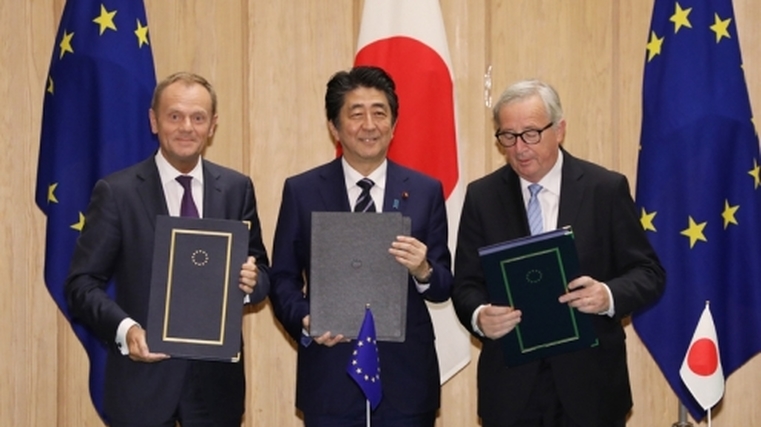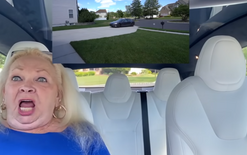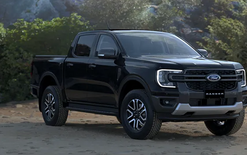EU sales boost for Japan

Japanese car manufacturers set for European sales boost thanks to the European Union (EU) and Japan signing a free trade deal on Tuesday.
The trade pact, which creates the world’s largest open economic area, removes EU tariffs of 10 per cent on Japanese cars and 3 per cent on most car parts.
The tariffs will be reduced to zero over eight years.
"There are rising concerns about protectionism, but I want Japan and the EU to lead the world by bearing the flag of free trade," said Prime Minister Shinzo Abe at a news conference on Tuesday after the signing ceremony.
The European Union hailed the trade deal with Japan as the largest it has ever negotiated.
"We are sending a strong signal to the world that two of its biggest economies still believe in open trade, opposing both unilateralism and protectionism," said EU commissioner for trade Cecilia Malmström.
Nearly 575,000 Japanese cars with a total value of NZ$15 billion were imported into the EU during 2016.
However, a large number of the most popular models sold in Europe by Japanese manufacturers are built in Europe and therefore don't attract the 10 per cent external tariff.
In fact, there are very few of the best-selling Japanese vehicles in Europe that are still built in Japan and exported to the EU.
The Toyota Yaris is built in France, the Toyota Auris is built in the UK and the Toyota Aygo is built in the Czech Republic. Likewise, the Honda Civic and Honda CR-V are both built in the UK.
The majority of Lexus models sold in Europe are still built in Japan, so they stand to gain from the fall of a 10 per cent tariff. Subaru also assembles their cars in Japan.





